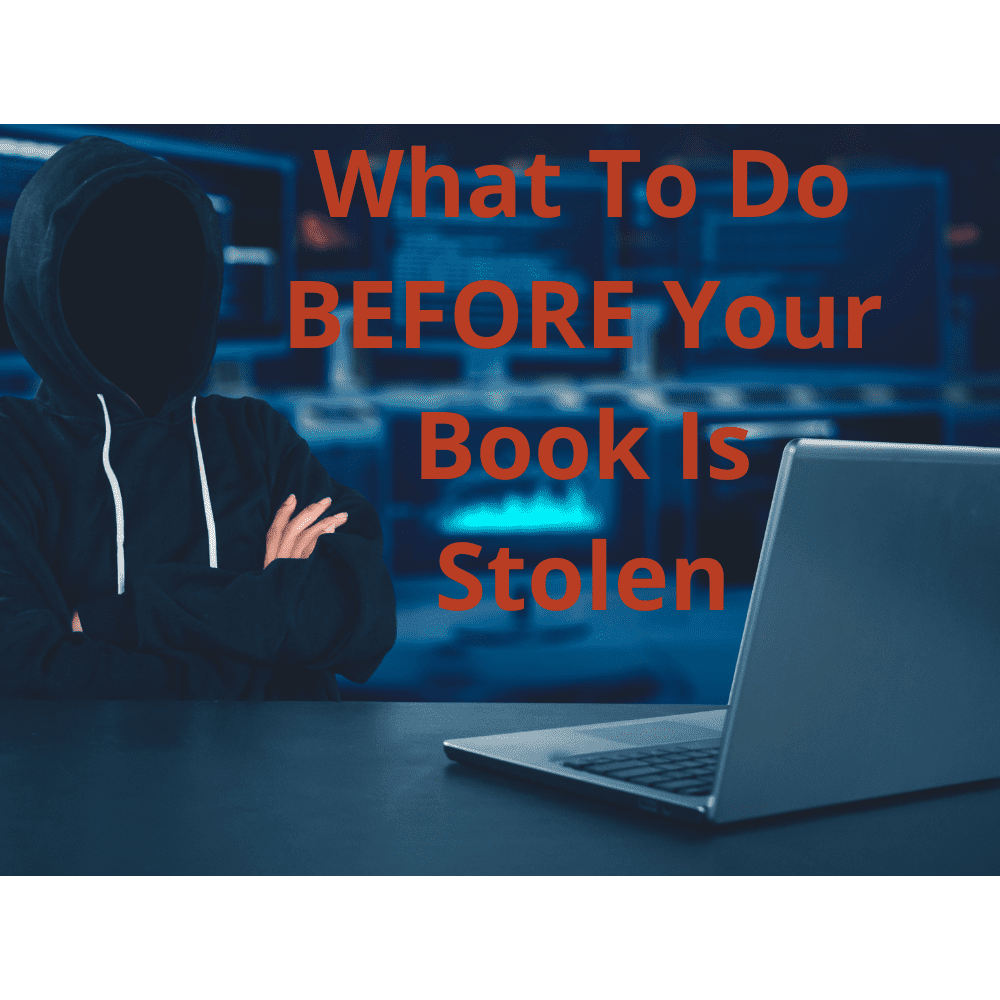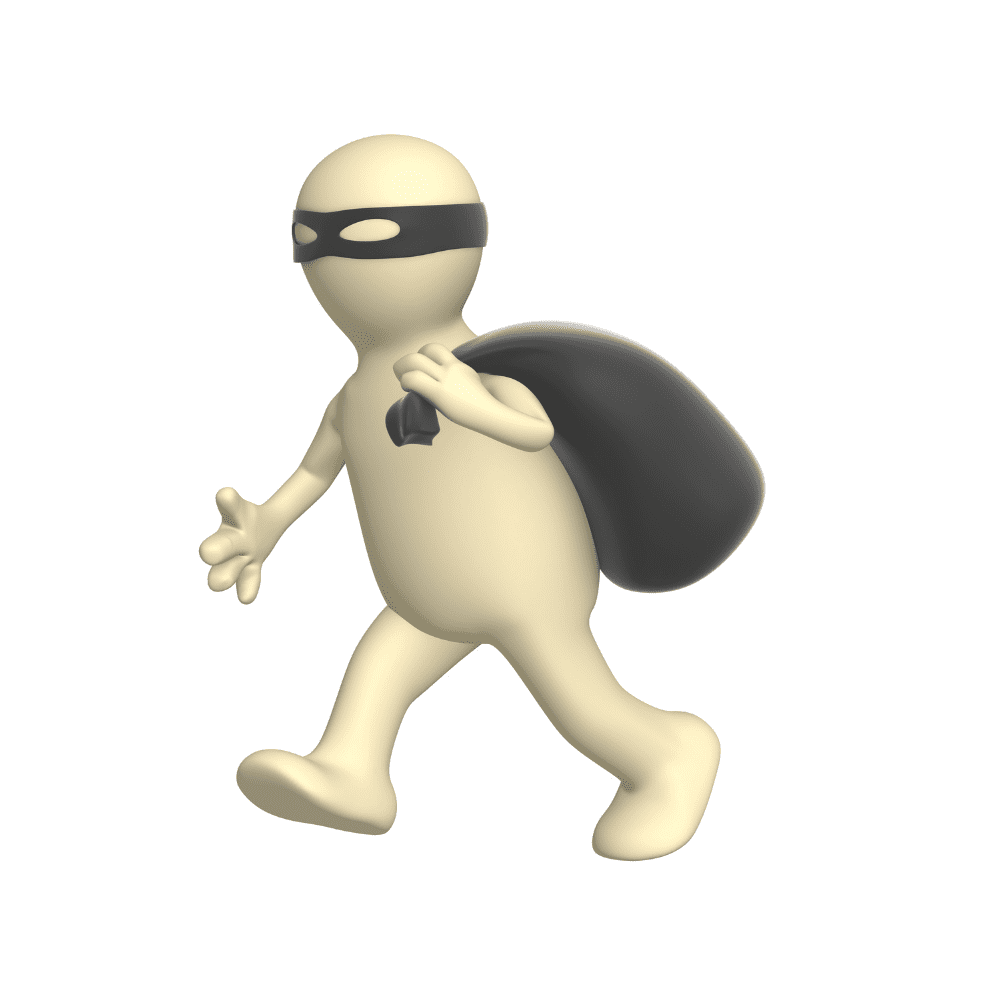What You Should Do BEFORE Your Book Is Stolen
You sit there, staring at the screen, not believing what you’re seeing. That’s your synopsis, your cover, your title, YOUR BOOK but not your name on it. Someone has stolen YOUR book and is now profiting off of it. Now what?! Well, depending on what you did before this point can determine whether you are well prepared to fight this imposter or just out of luck and all your hard work is down the drain. So, let’s back up a bit and look at what you can do to protect yourself before you end up at this unfortunate point.

There are several things you can do to protect your creative work in case this nightmare scenario ever happens to you and a little preparedness now can save you a lot of heartache later.
1. Get a registered copyright of your book
A registered copyright of your book says that this creative work is yours and only yours. It is a public record of your ownership and gives you the exclusive right to distribute, copy, display, perform and create a derivative of this work. It will hold up in court and gives you the ability to recover attorney’s fees and statutory damages up to a certain amount should the question of ownership ever end up in a courtroom. It becomes effective on the date the U.S. Copyright Office receives your application, pending approval. You should do this as soon as possible after you publish your work, preferably the day of or within a few days. For more in depth information on how to copyright your book, see my blog post: How To Copyright Your Book In 10 Easy Steps (and Why You Should!)
2. Save any press you receive about the announcement of and release of your book
This could be screenshots of social media or anything else you might have about the release of your book so that you have proof that it was published earlier than the imposter copies. Make sure it includes a picture of the book and date.
So that is all prep work and hopefully you can stick all that in a file somewhere and never have to open it again. However, if you do find yourself sitting and staring at that computer screen in shocked disbelief, here’s what you can do next.
3. Do a search on the offending author
See if there are other platforms out there with your book on it. Be very diligent about snapping screenshots and bookmarking links because you will later have to go back to those platforms and petition for the plagiarized book to be taken down. That’s for later though. Right now, you’re building a case and your evidence needs backups in case the links change or disappear completely. Screenshot as much as you can and save everything in a file and make a regular backup of that file (like to a thumb drive) as you add to it.
4. Do NOT contact the other person or take to social media with it
As tempting as that is, for now, your silence here is key. If the other person finds out that the charade has crumbled and all you’ve done is let them know by contacting them or trumpeting it on social media, they will simply take the book down and disappear along with whatever money they might have gotten from it. They’ll go underground to try again another day and you will have no recourse after that. In most cases, these are fake accounts and finding out actual contact information will be difficult. Hold your tongue and bring out the bigger guns instead.
5. Start filing formal complaints
If you happened to use a publisher or distributor, start there. If you are self-published, don’t despair. Start with the platform you published with. For many, that is Amazon.com so go to amazon.com/report/infringement to submit a Copyright Infringement Claim, and they detail on that page what you need to provide. Contact any other publishing platforms you may have used and provide as much detail and evidence as possible. This is where you get out your copyright certificate, your press release evidence, screenshots, links, and everything you’ve collected.
6. Exercise your copyright benefits
At this point, you may want to talk to an attorney who specializes in intellectual property, arts, or entertainment law. Since its a copyright infringement (and you have a registered copyright), you can also report it to your local FBI office or online. The U.S. Copyright Office is merely an office of public record so they can’t help you with copyright violations but the FBI has a division for just such things. Their Cyber Division investigates intellectual property crimes involving all digital and electronic works. You can read more at www.fbi.gov/ipr
You can file a complaint in one of three ways: 1) Your local FBI field office 2) Online at the Internet Crime Complaint Center (www.ic3.gov) and it will be properly routed or 3) suspected criminal activity of any nature may be reported online at tips.fbi.gov and will be routed accordingly.

Hopefully, you will never have to use any of this but if you do, it’s better to be prepared than to be scrambling after the fact. There are unscrupulous individuals out there who are hoping to make a buck off of someone’s hard work. However, a little preparation and knowledge will hopefully help you fight back should it ever happen to you.
If you like this article, please share it on Facebook. Want to read more? Please go like and follow my Facebook page HERE for upcoming articles. Please visit my website HERE, if you’d like to know more about my editing and proofreading services. You can also follow me on Pinterest HERE and on Twitter HERE.
Leave a Reply